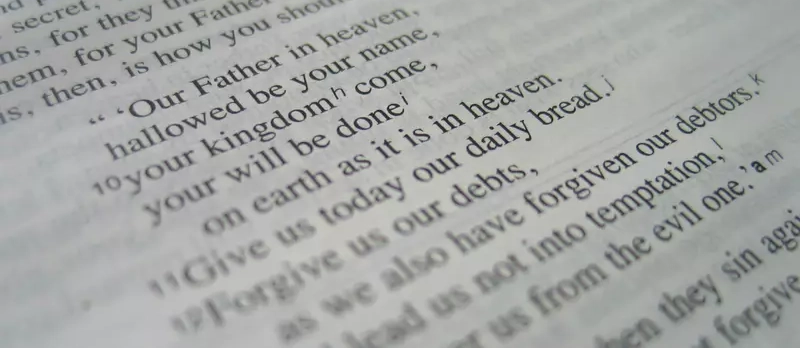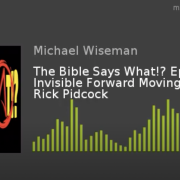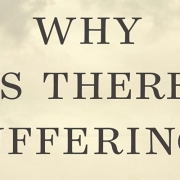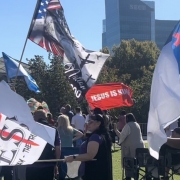When ‘thy kingdom come’ is a threat more than a blessing
This article originally appeared at Baptist News Global on November 4, 2024.
Every election season since I left the final church I was a part of in 2019 is a reminder of why I don’t think I could ever go back.
And I know many ex-evangelicals agree with me.
I’m writing this just days before the 2024 election. So we don’t know what the exit polls will say about white evangelicals yet. But we all know it’s not going to be good. North of 80% will go for Donald Trump. And they’ll be voting in the millions.
Sociologist Ryan Burge said recently in a conference at Denver Seminary, “When a religious movement becomes overwhelmingly a political monoculture, that’s bad not just for the people in the pews, but for democracy as a whole.”

Rick Pidcock
While my concerns about the church include the political monoculture of support for Trump, they also include the theological monoculture of spiritual warfare paired with retributive justice that justifies support for Trump.
No matter how diverse theological communities may be from Bible-thumping men like John MacArthur to tongues-speaking charismatics like Paula White, virtually every evangelical church believes in spiritual warfare and retributive justice. So even if I were to attend a more politically muted evangelical church, they still would hold onto the same theological cards that are eventually played to hurt people.
“Virtually every evangelical church believes in spiritual warfare and retributive justice.”
They may hold their cards closer to their chest or smile prior to placing them down. But the theology and politics are still there, just waiting to be played.
This is why the problem goes much deeper than Trump. As Liz Cheney said to her fellow Republicans: “There will come a day when Donald Trump is gone. But your dishonor will remain.”
For example, the dehumanization transgender people feel from Trump’s $20 million anti-transgender ads will remain due to the dehumanizing mindset of the Christians those ads are tapping into. In an interview with CBC News, Chrissy Stroop explained: “It feels dehumanizing. And I mean that is the whole politics of it. It’s using a small population, marginalized population as a wedge issue by dehumanizing us.”
When I hear Burge conclude this monoculture mindset is bad for people in the pews and for democracy as a whole, I’m inferring that the evangelical monoculture is a harmful community for self and neighbor.
So why would I participate in that?
‘Stuck In the Middle with You’
In the season finale of BNG’s podcast, “Stuck In the Middle with You,” Benjamin Cole shares how he left the pastorate in 2008. “I knew I just couldn’t do it anymore,” he recalls. After moving to Washington, D.C,. to work in far-right politics, Cole confesses, “I really almost lost my soul while I was in Washington. I journeyed far away from home.”
 Still, despite no longer attending a Baptist church at the time, Cole continued reading the Bible and occasionally attended mass at St. Matthew’s Cathedral.
Still, despite no longer attending a Baptist church at the time, Cole continued reading the Bible and occasionally attended mass at St. Matthew’s Cathedral.
Cole’s decision to leave the pastorate and my choice to leave the church likely were due to very different reasons. But much of the language Cole uses in this episode resonates with the feelings I was processing in making my decision.
When Paige Patterson called him once purportedly to apologize, Cole responded by saying: “I just want you to leave me alone. I want you to have nothing to do with me.” He then added, “I was so done. I walked away from it. And in the process of it, personally, I traveled a far distance from my own spiritual home. I got away from God for a long period of time.”
Then around 2014, Cole says, “Through a series of foolishness on my part and the providential hand of God, I was like, I have to be in church. … And I came back home. And I can just tell you, the Lord has restored the years which the locusts ate in my life.”
Cole now serves as a layman in a Southern Baptist church and seems to be enjoying that role. “I am hopeful that I can spend the next 20, 25 years of my life as a layman helping to reinvigorate Baptist laity,” he told BNG Executive Director Mark Wingfield.
Deconstruction vs. disengagement
Wingfield responds to Cole by making a distinction between deconstruction and disengagement. “So, the word of the decade in Christian life has been deconstruction,” Wingfield notes. “Everyone is in a flurry about deconstructing Christians, people who are rethinking their faith. And this word is very alarming to some people. It’s very comforting to others.”










Leave a Reply
Want to join the discussion?Feel free to contribute!